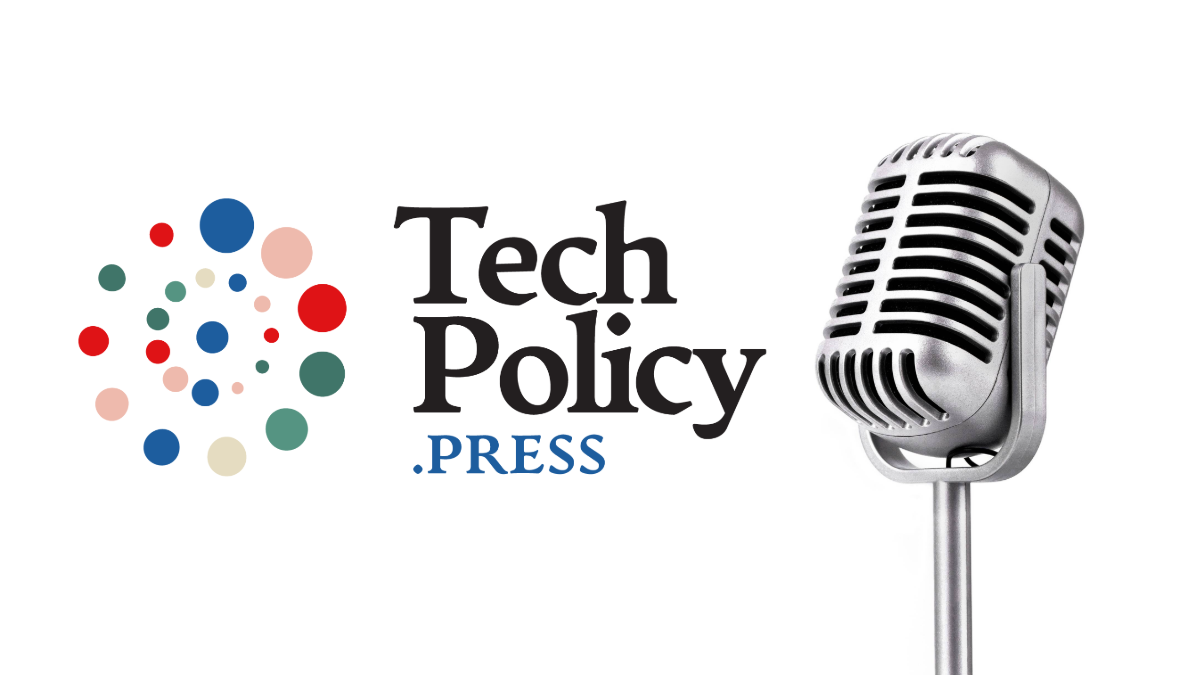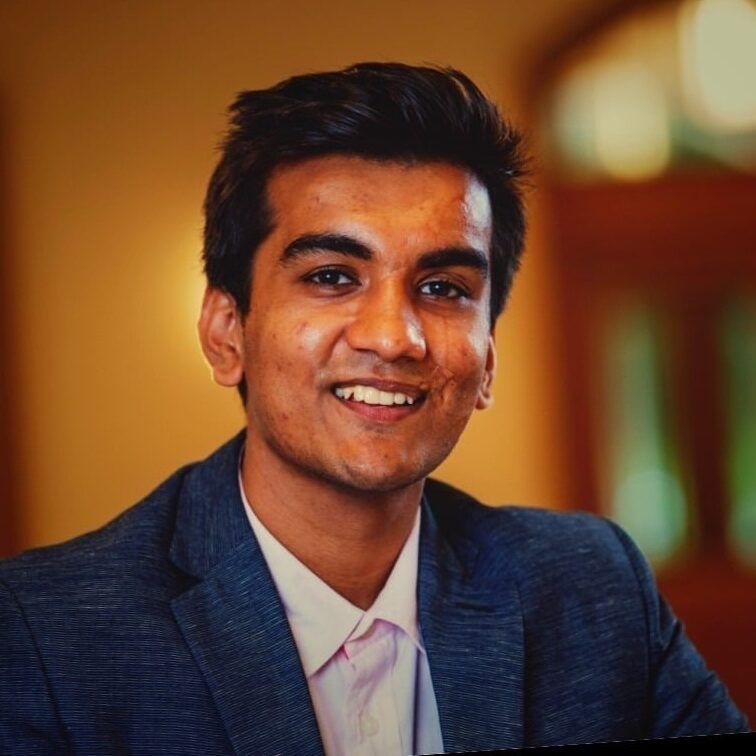Top 25 Tech Policy Press Podcasts of 2024
Justin Hendrix, Prithvi Iyer / Dec 23, 2024
Tech Policy Press published 85 podcast episodes in 2024. We’re grateful to our guests and to our listeners, many of whom subscribe to the feed via their favorite podcast service. Below are the top 25 most listened podcasts of the year.
We look forward to delivering more engaging debate and discussion at the intersection of technology and democracy in 2025.
Want to support this work? You can make a donation here.
1. Documenting the Assault on Disinformation and Hate Speech Research – November 24, 2024
A conversation with Philip M. Napoli, the James R. Shepley Professor of Public Policy, the Director of the DeWitt Wallace Center for Media & Democracy, and Senior Associate Dean for Faculty and Research for the Sanford School at Duke University.
2. AI Snake Oil: Separating Hype from Reality – September 29, 2024
Arvind Narayanan and Sayash Kapoor are the authors of AI Snake Oil: What Artificial Intelligence Can Do, What It Can’t, and How to Tell the Difference, published September 24 by Princeton University Press.
3. Evaluating Social Media's Role in the Israel-Hamas War – January 7, 2024
A conversation with Emerson T. Brooking, Layla Mashkoor, and Jacqueline Malaret—about their observations on the role that platforms operated by X, Meta, Telegram, and TikTok have played in shaping perceptions of the initial attack and the brutal ongoing Israeli siege of Gaza.
4. How to Assess AI Governance Tools – January 28, 2024
Justin Hendrix spoke with Kate Kaye, an author of the World Privacy Forum report reviewing AI governance tools. The conversation delved into an overview of the report and issues ranging from the involvement of large tech companies in shaping AI governance tools to the need to consult people and communities that are often overlooked when making decisions about how to think about AI.
5. Imagining AI Countergovernance – February 11, 2024
Blair Attard-Frost unpacked "AI countergovernance," alternative mechanisms for community-led and worker-led governance that serve as means for resisting or contesting power, particularly as it manifests in AI systems and the companies and governments that advance them.
6. Resisting AI and the Consolidation of Power – May 5, 2024
A discussion with Jenna Burrell, Jacob Metcalf, Shazeda Ahmed, and Émile P. Torres about how power, wealth, and ideology shape discourse in computer science and constrain critiques of the AI industry.
7. What's Next for TikTok, and US Tech Policy – April 28, 2024
A conversation with Anupam Chander, a law professor at Georgetown and a visiting scholar at the Institute for Rebooting Social Media at Harvard University; Rose Jackson, the director of the Democracy and Tech Initiative at the Atlantic Council; and Justin Sherman, CEO of Global Cyber Strategies and adjunct professor at Duke University.
8. How to Counter Disinformation Based on Science – February 25, 2024
Jon Bateman and Dean Jackson discussed takeaways from their report for the Carnegie Endowment for International Peace that looks at what is known about a variety of interventions against disinformation and provides evidence that should guide policy in governments and at technology platforms.
9. The Societal Impacts of Foundation Models and Access to Data for Researchers – April 14, 2024
This episode features two conversations. First, Sayash Kapoor, a PhD candidate at the Department of Computer Science and the Center for Information Technology Policy at Princeton University, and Rishi Bommasani, the society lead at Stanford Center for Research on Foundation Models, discussed the societal impact of open foundation models. The episode also features Mark Scott, former Politico Chief Technology Correspondent on the US-EU Trade and Technology Council’s debates over researcher access to social media platform data.
10. Questioning OpenAI's Nonprofit Status – January 14, 2024
A conversation with Robert Weissman, the president of the nonprofit consumer advocacy organization Public Citizen. Weissman authored a letter addressed to the California Attorney General that raised significant concerns about OpenAI’s 501(c)(3) nonprofit status.
11. What Kafka Can Teach Us About Privacy in the Age of AI – November 3, 2024
A conversation with Boston University School of Law professor Woodrow Hartzog, who, with the George Washington University Law School's Daniel Solove, is one of the authors of a recent paper that explored the novelist Franz Kafka’s worldview as a vehicle to arrive at key insights for regulating privacy in the age of AI.
12. The Race for AI Supremacy – November 17, 2024
Justin Hendrix spoke with Parmy Olson, a Bloomberg Opinion columnist covering technology regulation, artificial intelligence, and social media, about her new book, Supremacy: AI, ChatGPT, and the Race that Will Change the World, which tells a tale of rivalry and ambition as it chronicles the rush to exploit artificial intelligence.
13. Don't Hype Disinfo, Say Disinfo Experts – May 5, 2024
A discussion with Gavin Wilde, Senior Fellow, Technology and International Affairs program, Carnegie Endowment for International Peace; Thomas Rid, Professor of Strategic Studies, Johns Hopkins University SAIS; and Olga Belogolova, Director, Emerging Technologies Initiative, Johns Hopkins SAIS, and Lecturer, Alperovitch Institute for Cybersecurity Studies, about their Foreign Affairs essay that argued exaggerating disinformation’s impact aids propagandists and undermines societal trust.
14. Considering the Ethics of AI Assistants – July 7, 2024
A conversation with Shannon Vallor, Professor of AI and data ethics at the University of Edinburgh and director of the Center for Technomoral Futures in the Edinburgh Futures Institute, and Iason Gabriel, a research scientist at Google DeepMind about a report co-authored by 57 researchers exploring the ethical and societal risks of advanced AI assistants.
15. How to Defend Independent Technology Research from Corporate and Political Opposition – January 21, 2024
A conversation with Brandi Geurkink, executive director of the Coalition for Independent Technology Research, a membership organization comprised of people working across civil society, academia, and media organizations studying technology's impacts on society.
16. Salvation, Abundance, Apocalypse: Is Technology the World's Most Powerful Religion – November 10, 2024
A conversation with Greg Epstein, the humanist chaplain at Harvard and MIT, about his book, Tech Agnostic: How Technology Became the World's Most Powerful Religion, and Why It Desperately Needs a Reformation.
17. Silicon Valley Leaders Cast Their Lot with Donald Trump – July 21, 2024
A conversation with Henry Farrell, Professor of international affairs and democracy at Johns Hopkins University), Elizabeth Spiers, a New York Times contributor, and Dave Karpf, an associate professor at George Washington University in the School of Media and Public Affairs, about the motivations behind Silicon Valley billionaires endorsing now President-elect Donald Trump and his running mate, now Vice President-elect J.D. Vance.
18. What's at Stake in Murthy v Missouri? – March 17, 2024
Tech Policy Press Reporting Fellow Dean Jackson spoke with Mayze Teitler and Jennifer Jones from the Knight First Amendment Institute at Columbia University and Meetali Jain from the Tech Justice Law Project in anticipation of oral arguments in the Murthy v. Missouri case.
19. AI and Epistemic Risk: A Coming Crisis? – June 10, 2024
Justin Hendrix spoke with Elise Silva, a postdoctoral associate at the University of Pittsburgh Cyber Institute for Law, Policy, and Security, and John Wihbey, an associate professor at Northeastern University in the College of Arts, Media and Design.
20. Resisting the Tech Coup: A Conversation with Marietje Schaake – September 22, 2024
Marietje Schaake delved into her new book, which critiques Big Tech’s role in undermining democracy and the importance of policymakers resisting the powerful tech lobby.
21. Assessing Systemic Risk Under the Digital Services Act – October 6, 2024
Gabby Miller, former staff writer at Tech Policy Press, spoke with Jason Pielemeier, Executive Director of the Global Network Initiative; David Sullivan, Executive Director of the Digital Trust & Safety Partnership; and Chantal Joris, Senior Legal Officer at Article 19, about interpreting risk assessments under the Digital Services Act.
22. FTC Commissioner Alvaro Bedoya on Algorithmic Fairness, Voice Cloning, and the Future – February 18, 2024
Federal Trade Commissioner Alvaro Bedoya discussed how the FTC thinks about AI and its role in the broader constellation of federal regulatory agencies.
23. Tech CEOs Face the US Senate on Child Safety – February 4, 2024
Gabby Miller and Haajrah Gilani covered the US Senate Judiciary Committee hearing, where the CEOs of Meta, TikTok, X, Discord, and Snap testified about their efforts to protect children online.
24. Understanding the People Who Turn Lies Into Reality – September 1, 2024
A conversation with Georgetown researcher Renée DiResta, who serves on the board of Tech Policy Press and is an occasional contributor, about her new book, which examines how propagandists, influencers, and algorithms reshape public opinion and undermine trust in institutions.
25. US Supreme Court Considers Florida and Texas Social Media – March 3, 2024
A conversation with Gabby Miller, former Tech Policy Press staff writer, and Ben Lennett, managing editor, about the US Supreme Court oral arguments on Florida and Texas laws restricting social media companies' content moderation practices.
Related Reading
Authors

